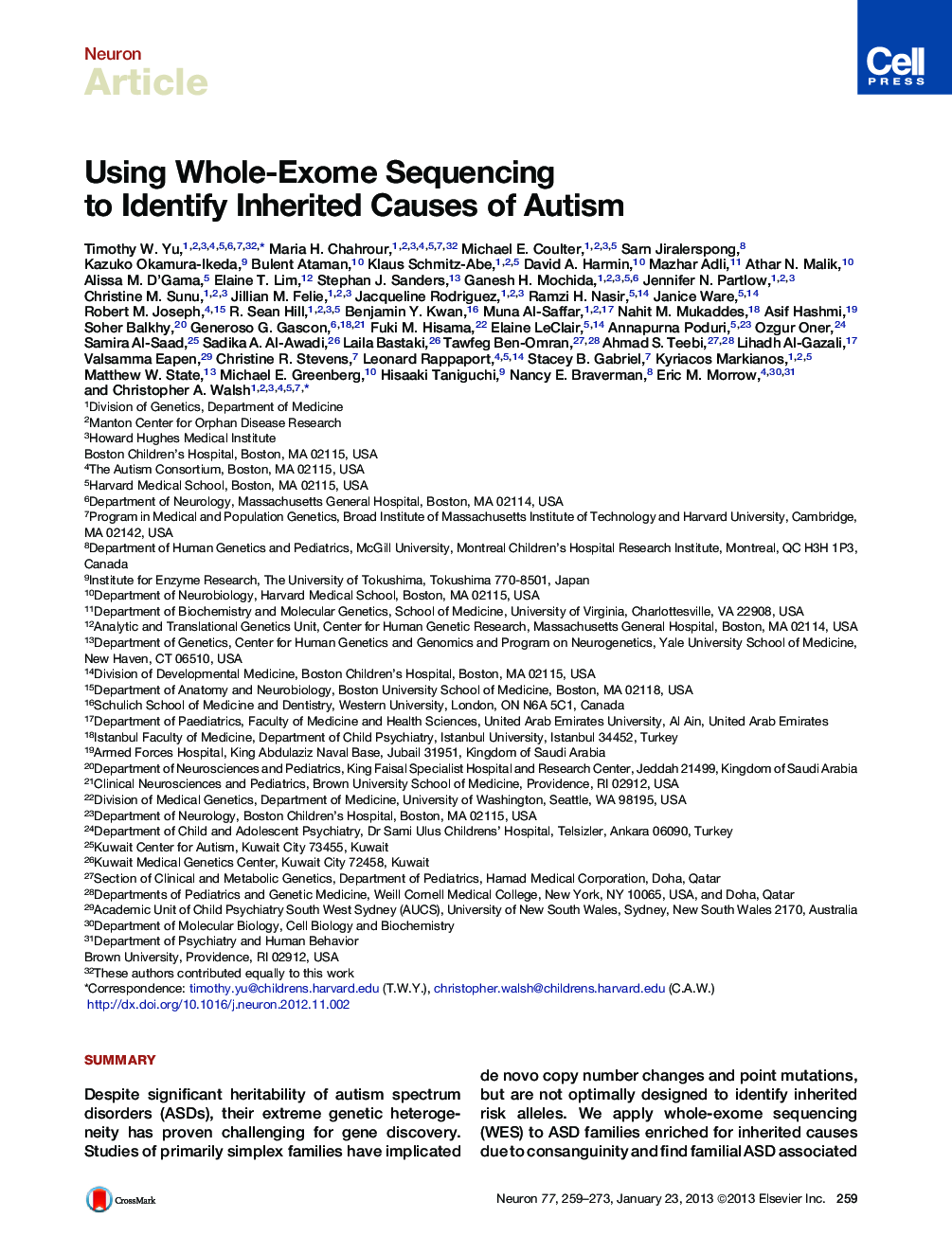| کد مقاله | کد نشریه | سال انتشار | مقاله انگلیسی | نسخه تمام متن |
|---|---|---|---|---|
| 4321176 | 1291582 | 2013 | 15 صفحه PDF | دانلود رایگان |

SummaryDespite significant heritability of autism spectrum disorders (ASDs), their extreme genetic heterogeneity has proven challenging for gene discovery. Studies of primarily simplex families have implicated de novo copy number changes and point mutations, but are not optimally designed to identify inherited risk alleles. We apply whole-exome sequencing (WES) to ASD families enriched for inherited causes due to consanguinity and find familial ASD associated with biallelic mutations in disease genes (AMT, PEX7, SYNE1, VPS13B, PAH, and POMGNT1). At least some of these genes show biallelic mutations in nonconsanguineous families as well. These mutations are often only partially disabling or present atypically, with patients lacking diagnostic features of the Mendelian disorders with which these genes are classically associated. Our study shows the utility of WES for identifying specific genetic conditions not clinically suspected and the importance of partial loss of gene function in ASDs.
► Whole-exome sequencing (WES) applied to ASD families enriched for inherited causes due to consanguinity
► Familial autism (ASD) traced to hypomorphic mutations in disease genes AMT, PEX7, SYNE1, VPS13B, PAH, POMGNT1
► The importance of partial loss of gene function in ASDs
► Whole-exome sequencing may be useful for molecular diagnoses due to missed or atypical disease
Journal: - Volume 77, Issue 2, 23 January 2013, Pages 259–273